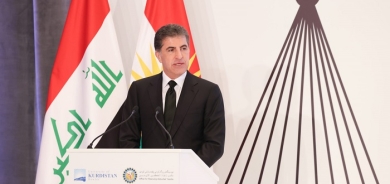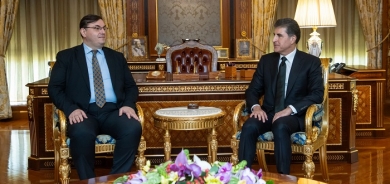Iraq's parliament pushes back against PM over reforms

The assembly acted on Monday after Abadi unilaterally enacted reforms in August that it deemed a violation of the constitution, including his dismissal of the vice presidents and deputy prime ministers and cuts to salaries of government employees.
Some of the measures have been implemented, while others appear to have stalled, with Iraq's three vice presidents remaining in place.
"What we have warned against in our letter to Abadi last week of taking unilateral reforms now came to an end," an MP, who asked to remain anonymous, told the Reuters news agency.
"Under this resolution no more absolute authorities for the prime minister."
Last week in a letter, more than 60 members of Iraq's ruling State of Law coalition threatened to withdraw parliamentary support for Abadi's reforms if he did not respond to their demands for wider consultation.
Many of the politicians who signed the letter are supporters of Abadi's predecessor, Nouri al-Maliki.
Slow to act
When he took office in September 2014, Abadi was seen as a consensus builder who could heal divisions between Iraq's Shias, Sunnis and non-Arab Kurds that sharpened during Maliki's tenure.
But senior officials have said they are not consulted about Abadi's reforms and often learn about them through the media
Speaking to Al Jazeera, Saad Jawad, a professor of political science and a senior fellow at the Middle East Centre at the London School of Economics, said Abadi had failed since August to take constructive measures to enforce the reforms in time.
"Unfortunately, he did not take advantage the support the Iraqis gave to him. He kept on speaking without taking measures. This is his problem," said Jawad. "Gradually, his enemies started to undermine his move."
Growing political tensions could undermine efforts to tackle an economic crisis and form a united front against fighters from the Islamic State of Iraq and the Levant (ISIL), who pose the biggest security threat to Iraq since a US-led invasion that toppled Saddam Hussein in 2003.
Poor morale in the armed forces was a significant reason why ISIL fighters swept through parts of the country last year, and then proceeded to seize about a third of the country.
"I don't think Abadi has succeeded in presenting himself, or his government, as a united one able to fight the Islamic State," said Jawad.
Abadi announced the reform campaign in August after protests erupted over fraud and poor water and electricity services in Iraq, a leading OPEC oil producer.
The steps are intended to scrap senior political offices that have become a vehicle for patronage for some of the most powerful people in Iraq and combat incompetence which has undermined the battle against groups such as ISIL.
Al Jazeera















